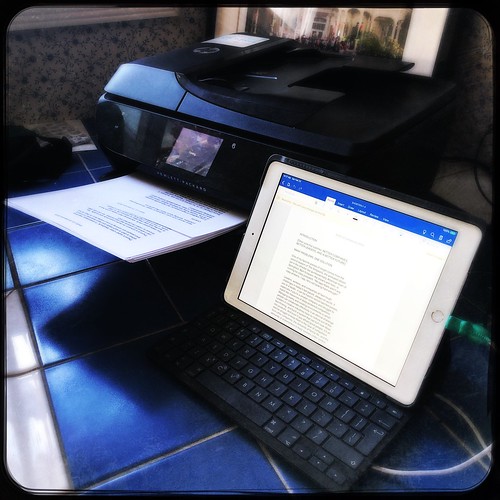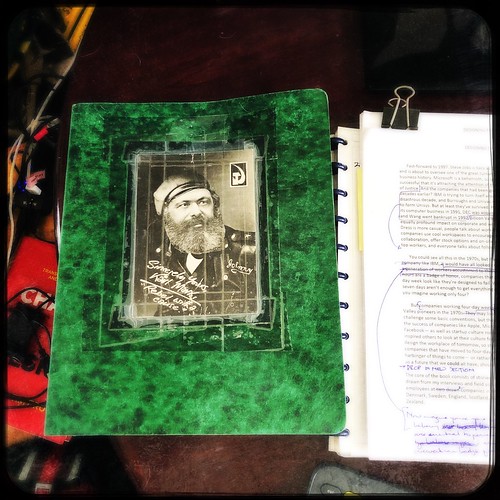This weekend I printed out a draft of the next book. It’s just under 50,000 words, out of about 70,000. I’ve still got plenty to write, but I’m making good progress.
With each of my recent books, I’ve found that at a certain point, it’s essential to have a physical copy of the manuscript. I absolutely love computers aa writing tools. When I was in grad school I spent a lot of money to buy a then-cutting edge Macintosh with a whole megabyte of RAM, and ever since then have probably devoted more energy to choosing and thinking about note-taking and writing software than just about anything else I own. One of there reasons I’m able to write fairly quickly is that I have a system that works pretty well for me: Evernote for note-taking, Scrivener for book drafts and organizational stuff, and at the very end stage, Word for printing things out and handling revisions suggested by my editor.
But there’s still a point where it’s useful to have a physical copy of the manuscript. For me, it’s a good way to have a sense of the overall shape of the project: I can see it more clearly on paper than I can on the screen, despite Scrivener’s strengths for organizing and reorganizing big projects. I also find that I’m more effective doing line edits on paper, and constructing transitions between paragraphs and other sections.
It does mean having to keep track of when I’ve carried changes I make on the printed page on the electronic file, but I find it’s not so onerous an additional task. It’s also definitely the case that at a certain point a manuscript gets too heavy with changes and has to be thrown out in favor of a fresh copy, but that’s always the case no matter what medium you work in.
After I punched holes in the paper, I put the manuscript in a binder I’ve had since roughly my postdoc days.
(I don’t have a lot of artifacts from my professional life, and this is undoubtedly one of the oldest, and one of the most useful. I assume Marx would approve.)
I have one more big interview I’d love to arrange, and a couple smaller ones, but essentially I’m done with the research. So it’s a pretty straight shot to the finish line from here: fill in the sections that I haven’t written, work the current material into shape, get it all to feel like one long long argument, and then I’m done.
Sounds easy, right?

